
Garbage disposals seem indestructible, but don’t be fooled. The mechanisms are sensitive, and the wrong thing can put your disposal out of commission and result in an expensive bill from your plumber. (Learn how to give it a deep clean yourself!) To seek out the culprits, I interviewed our family plumber on how to avoid a garbage disposal fiasco.
John Porter is the owner of his own plumbing business, JP Installations Services LLC in central Wisconsin, which has been in business for almost 30 years. He has also worked for several appliance stores, including Sears and Best Buy, and has installed close to 1,000 garbage disposals.
So, what ARE those forbidden garbage disposal items? Well, take it from a plumber…
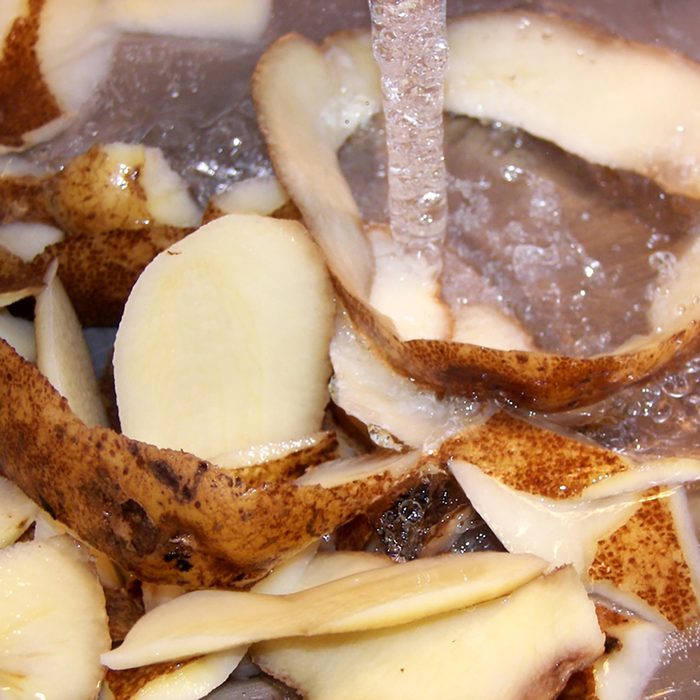
Potato Peels
The major garbage disposal offender? According to Porter, it’s potato peels. “Some of the worst [offenders] are starchy material like potato peels. Anything that might stick to your drain wall can be a problem.” In fact, he remembers having to go back to a house ten minutes after installing a garbage disposal because the user got potato peels stuck in the disposal. Don’t risk it, throw those peels in the trash!
Remember: you can forgo peeling your potatoes in recipes like this.
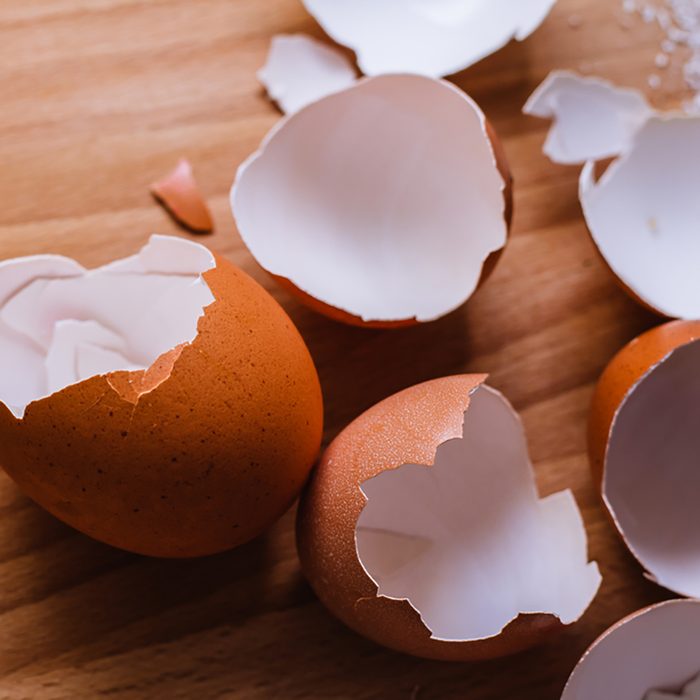
Egg Shells
We’ve all heard the proclamation that egg shells are not only safe to put down the disposal, but that they actually help sharpen the blades. Unfortunately, this myth could do some serious harm to your disposal, and cost you big. When the shells are ground, the tiny particles can stick together and clog your disposal and pipes. Not only that, but the thin membrane inside the shells can also get trapped over your drain, catching other items and resulting in a clog.

Harsh Drain Cleaner
When there’s a clog in the pipes, most people reach for the Drano. But Porter says it can do much more harm than good. “No liquid plumber…if it’s clogged, too much Drano can damage the pipes.” This damage includes ruining plastic pipes, putting holes in metal pipes, and even corroding the blades of the disposal. Instead, Porter recommends getting a mechanical snake rooter to clear out any clogs.
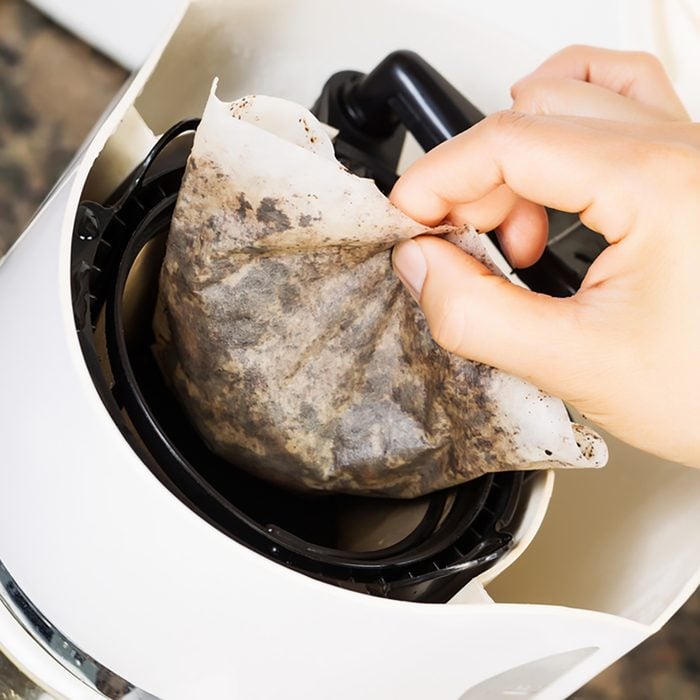
Coffee Grounds
Another garbage disposal myth debunked: coffee grounds for a smelly garbage disposal. Porter says coffee grounds could clear your disposal just fine, but there’s still a chance they could clog your drain. When ground, the coffee bean stays hard and becomes even denser in water, resulting in potential blockage. Better to play it safe and put your grounds in the trash or compost instead. Or, repurpose them around your home with these tricks!
If your disposal is smelly, Porter recommends orange and lemon peels: “If I have an orange, I’ll keep a couple peels and run [the disposal] at night dry with orange and lemon peels and let them sit overnight even if they’re not totally ground up.” He also recommends purchasing disposal cleaner at your local hardware or big box store.

Onion Skins
Like potato skins, onion skins are safer in the trash. The thin membrane underneath the outside dry layer is the main culprit, as it can get past the blades and become stuck over the drain like a small net. If it eventually traps more items, it could result in a drain blockage.
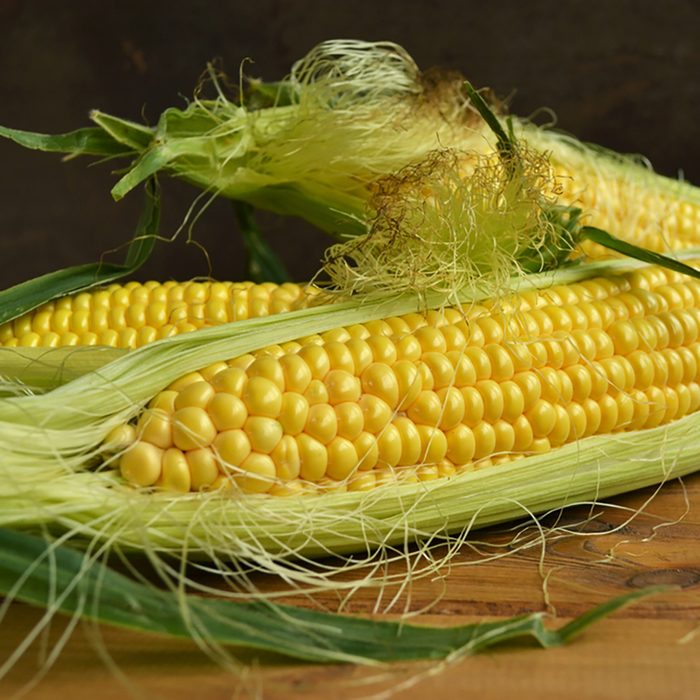
Corn Husks
We all love corn on the cob, and you’re probably already planning how to spice up your cob game for this summer. But on the subject of corn husks, Porter says “Definitely not! Too fibrous, and it would plug [the disposal] up in a heart beat.” He adds that it’s just generally a good idea to stay away from anything fibrous. And be wary of peels like banana peels, and even carrots and celery.

Bones
While your garbage disposal can handle a lot, there are some things it’s just not cut out for—bones are one of them. Although some people claim bones will help keep your blades sharp, Porter says it’s just not the case: “Anything you put down there will eventually wear it out.”
So enjoy your delicious chicken dinner, but make sure your bones end up in the trash.
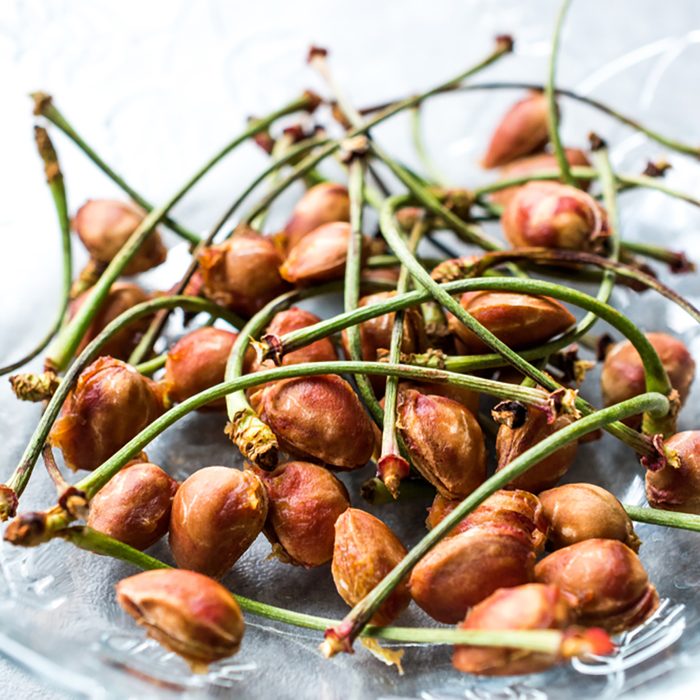
Pits
Just like bones, fruit pits are way too tough for your disposal to deal with. If you accidentally drop a hard object down, or if your garbage disposal jams, Porter says you can possibly deal with it yourself. Many times, a small jam will trip the breaker on the bottom of the disposal. “Hit the breaker, it’s just a little push button you don’t have to push too hard, turn it back on and see if it works.” If it doesn’t start up, Porter advises going in from the top using a screwdriver or a small crow bar to try and get the blades to move and clear out whatever is blocking the blades from turning. You can also purchase a garbage disposal retriever tool, which has a flashlight attached and a set of pincers to grab the dropped item.
But, always, safety first. “If you’re afraid to touch anything or afraid of getting your hand hurt then I would call your plumber, especially if you can’t get [the blades] to move.”
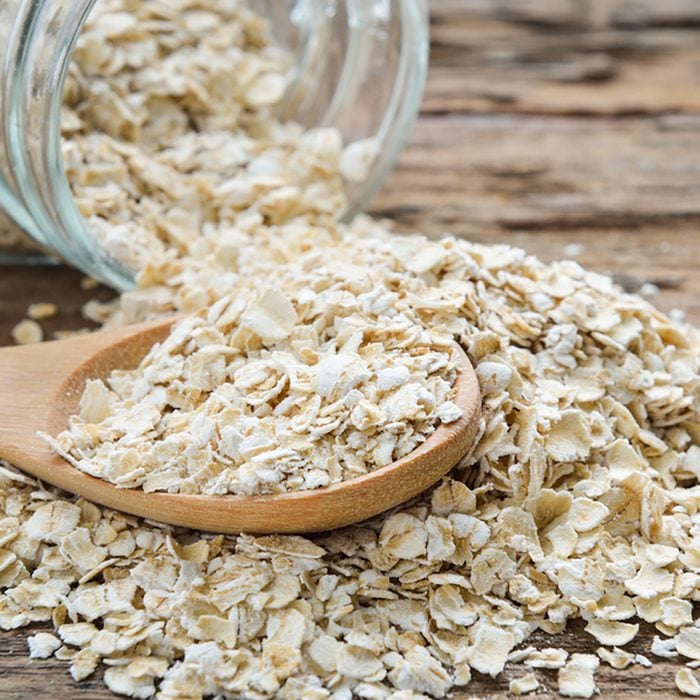
Oatmeal
The danger in putting oatmeal down the drain lies with its tendency to expand. Anything that grows once it takes on water, like pasta, oatmeal and breakfast cereal, is something to be wary of. If you simply have to put it down the garbage disposal, Porter says the trick is to simply use lots of water, and go slow. “[Garbage disposals are] great for cleaning up your sink if you have leftover meat or noodles. And it’ll take care of lettuce and things like that. But the most common mistake is people filling it up and then running it. They’ll think of it as a food processor. They should be running water as [the disposal] is running and pushing stuff down the drain.”
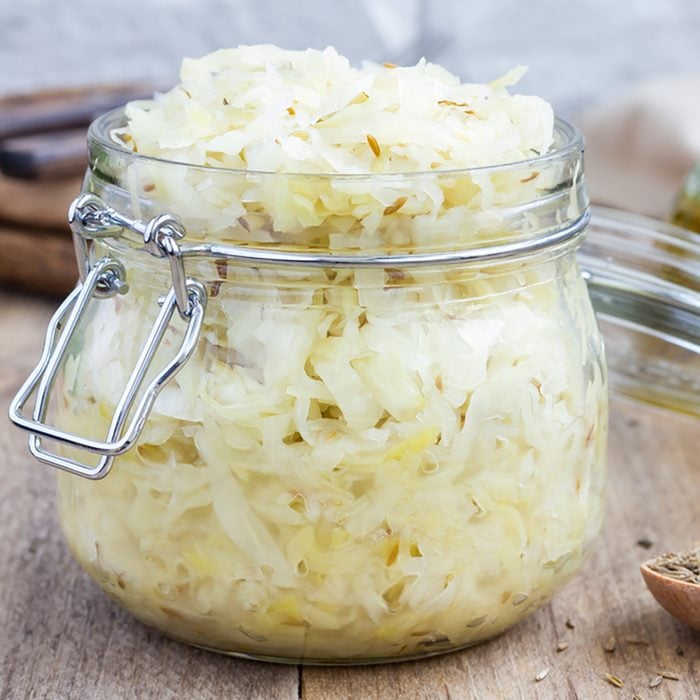
Sauerkraut
If you’re a fiend for the German dish of sauerkraut, just make sure it doesn’t get anywhere near your garbage disposal. Similarly to potato peels, sauerkraut can stick to the walls of your garbage disposal and create a blocked blade. So enjoy your sauerkraut brat, but make sure your scraps are staying out of the sink.
Can’t get enough of sauerkraut? Check out these delicious cabbage recipes.
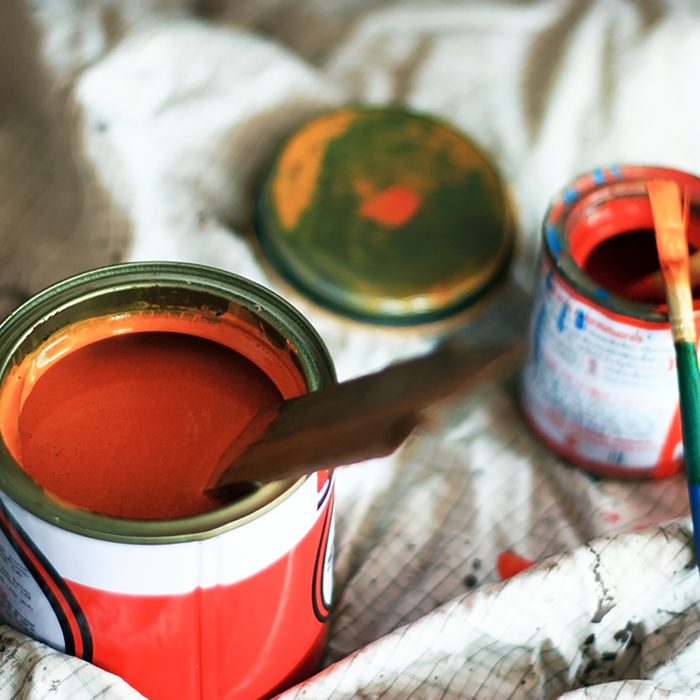
Paint
Paint might seem innocuous since it’s in liquid form, but it’s dangerous to pour any strong chemicals down the drain. Like liquid plumber, it can cause problems in your pipes. Furthermore, if you have a septic system or live above a well, you definitely don’t want those chemicals around. Porter suggests disposing of paint by leaving the covers off the buckets so the paint hardens and dries before throwing it out. Or, if you have a larger amount, pour the paint onto cardboard and let it dry.
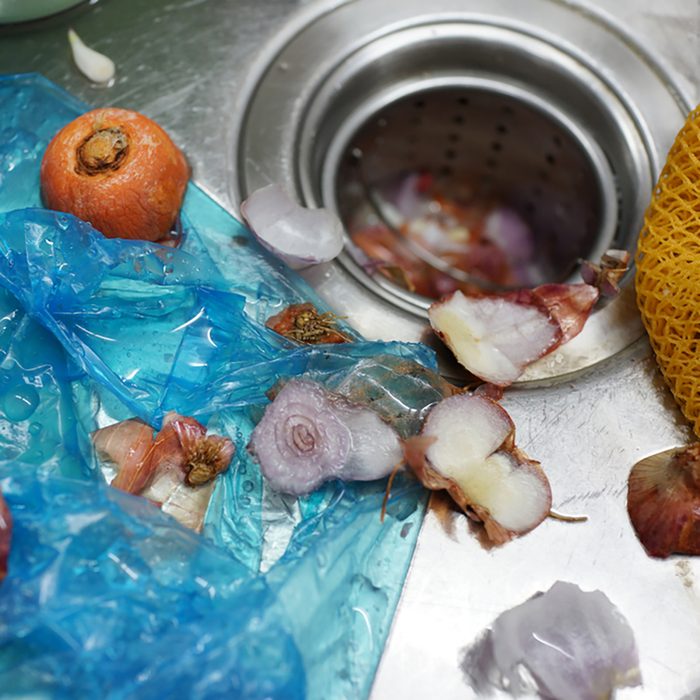
Trash
It’s easier than you would think to accidentally put trash down your disposals. Since a lot of people pack up their produce with plastic bags and twist ties, sometimes these items can end up in the sink, and then down the disposal. Once they’re down there, they can definitely cause a jam.
So, what other random dropped items end with a call to the plumber? Well, Porter says he often gets called for loose change down the disposal. In that case, the problem depends on the size of the coin: “A nickel will jam it up. A dime won’t, but it’ll just sound like a rocket ship taking off.”
Porter’s rule of thumb? If there’s a doubt, throw it out: “Any questions, don’t put it down there.”
